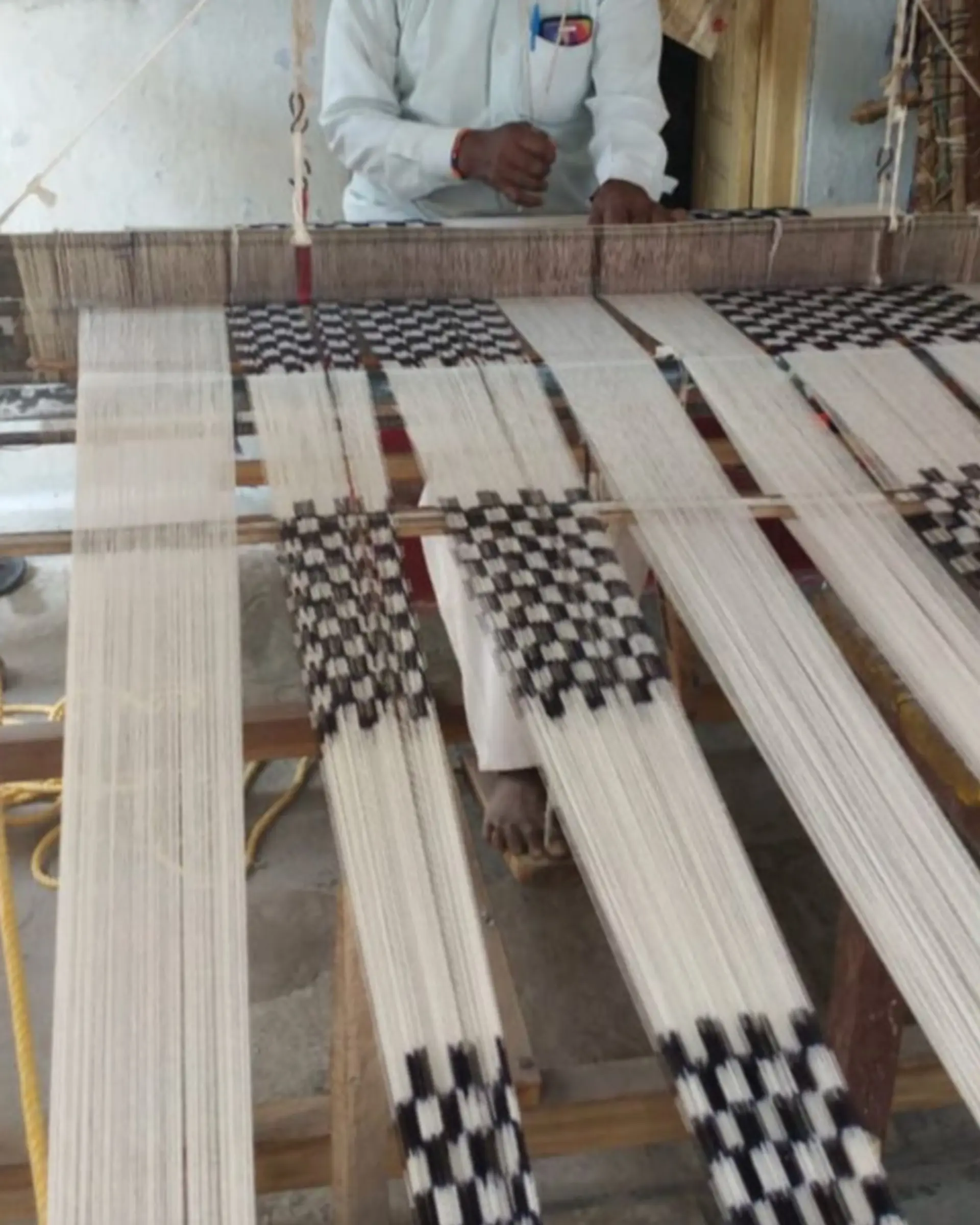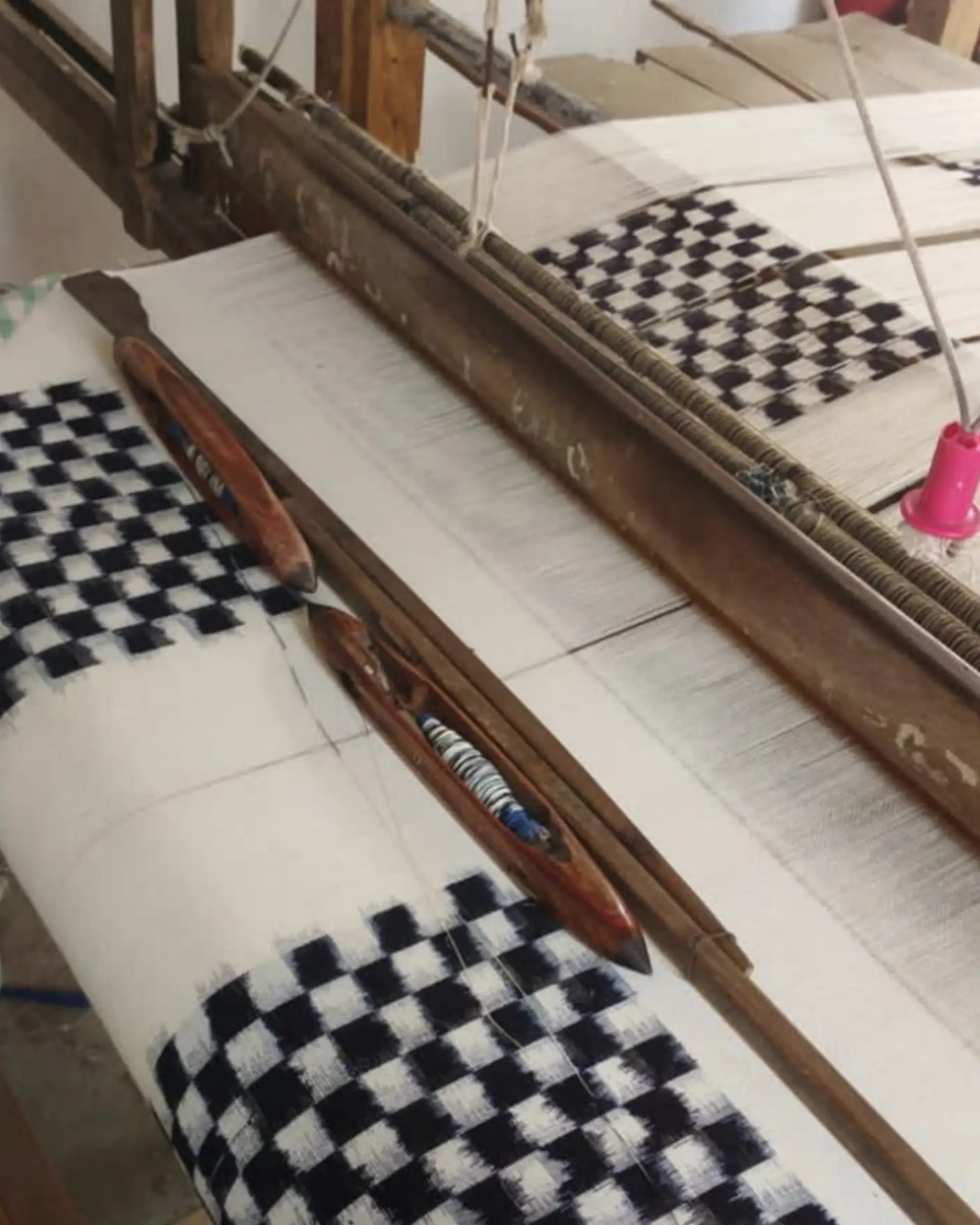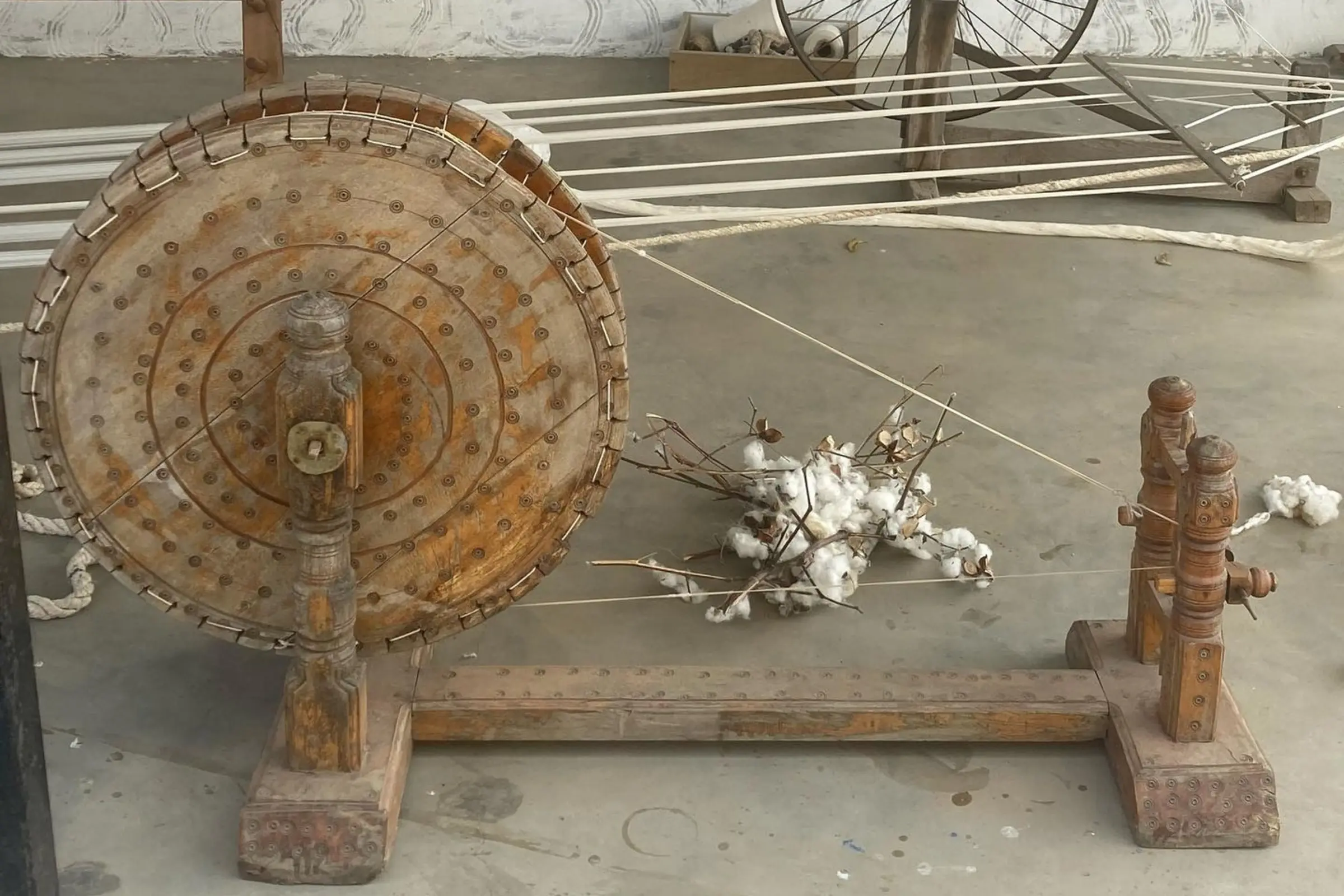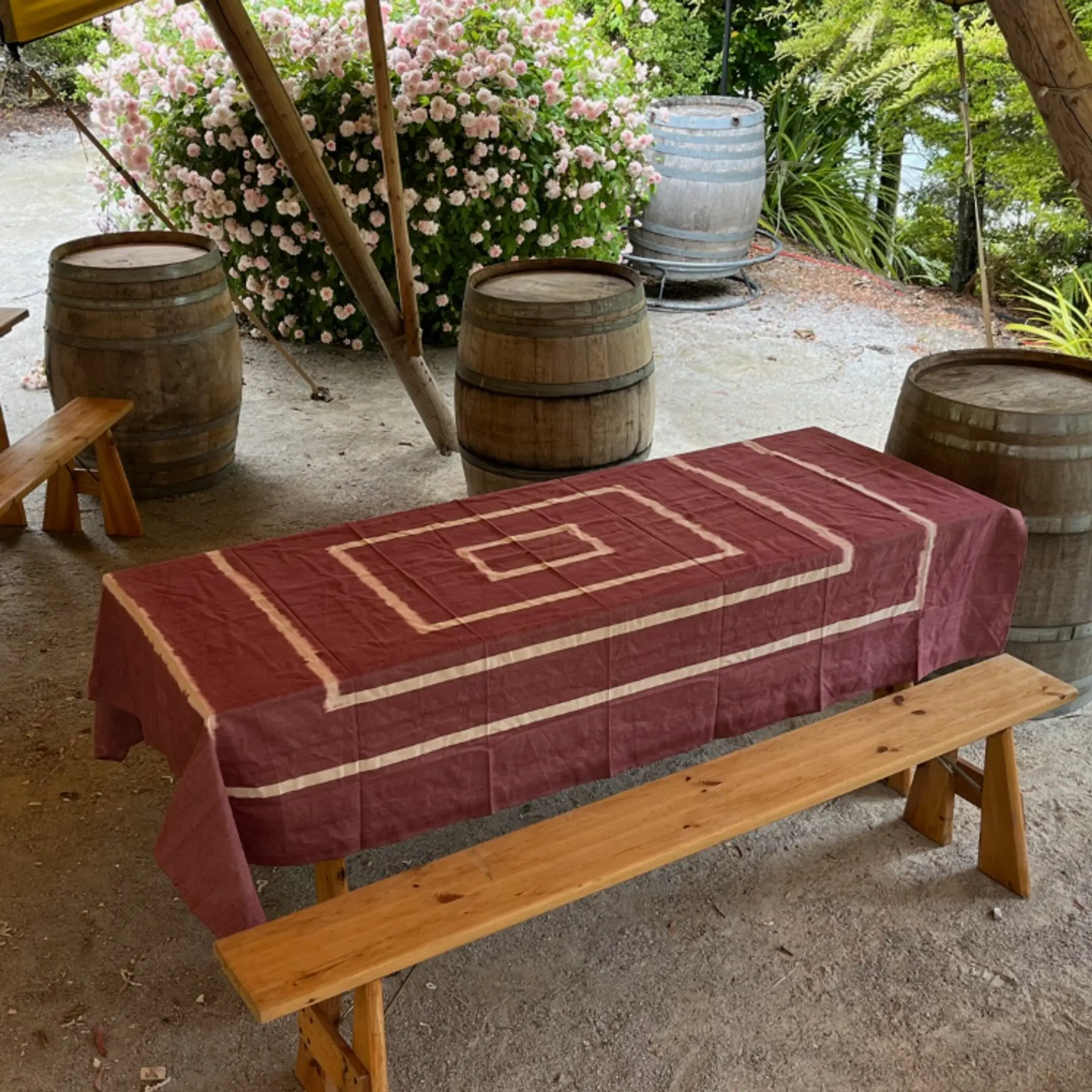Handwoven Ikat Textiles Rooted in Craft and Connection.
Founded in Aotearoa in 2019 by textile specialist Hilary Niederer, Stitchwallah is a celebration of traditional Indian weaving, natural dyeing, and the rich cultural relationships built through years of sourcing fabric with care. Hilary's background as a costumier spans theatre, film, and fashion across New Zealand, London, and the United States. But it was a transformative experience working on a Bollywood film in Mumbai that forged deep ties with artisan communities and inspired the beginnings of Stitchwallah.
Each piece reflects a respect for process and provenance, with distinctive Ikat patterns woven by hand and dyed using time-honoured methods. With a deep appreciation for texture, colour, and story, Stitchwallah’s textiles carry the spirit of their makers — crafted for living, layering, and lasting.
process Stitchwallah

Wallah, Walla (noun) – a person employed or in charge of a particular occupation or activity [from Hindi] eg: chai-wallah; rickshaw-wallah; stitch-wallah.

Ikat is a dyeing technique used to pattern textiles that employs resist dyeing on the yarns prior to dyeing and weaving the fabric.

charkha spinning wheel. This handmade wheel made for spinning yarn fibres has been used since the 6th century. The charkha is an important part of creating traditional Indian Khadi and Ikat woven cloths.




